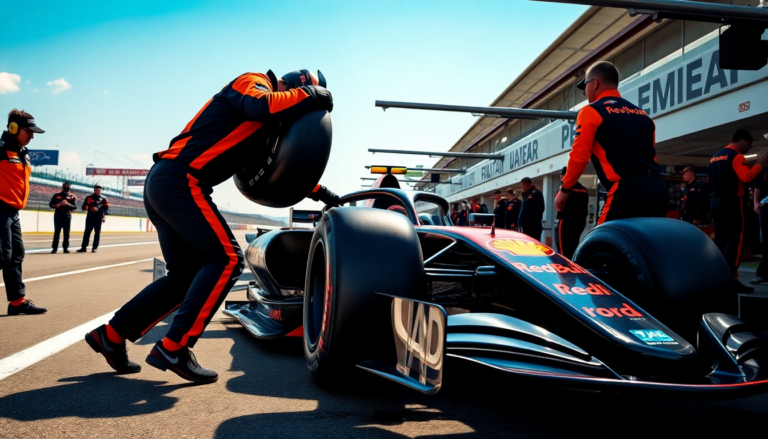Argomenti trattati
In the fast-paced world of Formula 1, transitions in leadership can significantly alter the sport’s dynamics. The recent departure of Christian Horner from his role as team principal of Red Bull Racing marks a pivotal moment in the sport. Meanwhile, Zak Brown, the team principal at McLaren, has expressed optimism about the future, hinting that the landscape of Formula 1 is on the brink of transformation. This article explores the implications of these changes, the reactions from key figures, and what it all means for the future of the sport.
Understanding the leadership shift
Christian Horner’s exit from Red Bull Racing has sparked conversations throughout the paddock. After guiding the team to an impressive 14 world championships over two decades, his departure raises intriguing questions about the future direction of the team. While Horner’s leadership was not without its controversies—particularly in the last 18 months, marked by allegations of inappropriate behavior—the fact that he was ultimately exonerated might not fully erase the cloud that hung over his tenure.
Stepping into Horner’s shoes is Laurent Mekies, who brings a fresh perspective to the role of team principal. Brown’s positive remarks about Mekies signal a potential shift towards a more collaborative environment within the sport. He emphasizes that, although political elements will always be part of the game, establishing a level of trust is essential for constructive dialogue among teams. Doesn’t that sound refreshing?
The relationship between Brown and Horner has often been fraught with tension, characterized by public jabs and competitive rivalry. However, Brown’s comments suggest the dawn of a new era—one where team principals might engage in meaningful conversations aimed at improving the sport without resorting to political maneuvering. This change could foster a more unified paddock, allowing for cooperation among teams while still preserving the fierce competition that defines Formula 1.
The implications for competition and collaboration
As Formula 1 moves forward, the implications of this leadership change extend well beyond Red Bull. A more collaborative atmosphere could enhance communication between teams, ultimately benefiting the sport as a whole. Brown’s emphasis on trust indicates a willingness to engage in discussions that prioritize the integrity of Formula 1 over the individual interests of teams. Isn’t that a win-win situation?
This newfound approach could set the stage for joint initiatives to tackle shared challenges within the sport, such as sustainability and technological advancements. By pooling their expertise, teams can address issues that impact the entire Formula 1 ecosystem. The more they collaborate, the stronger the sport becomes.
Moreover, the competitive landscape of Formula 1 is evolving. With McLaren currently leading both the drivers’ and constructors’ championships, the pressure on rival teams is palpable. Brown’s anticipation of racing against Red Bull in a more collegiate manner suggests that the upcoming seasons could feature a refreshing dynamic—where competition remains fierce but respectful. How exciting would that be for fans?
Looking ahead: the future of Formula 1
As we look to the horizon, the recent leadership changes in Formula 1 are set to influence the sport’s trajectory significantly. Horner’s departure and Mekies’ arrival could signal a potential shift in how teams interact and compete. Fans can look forward to a more open dialogue among team principals, which might lead to thrilling developments both on and off the track.
Furthermore, the evolution of team strategies and collaborations could introduce new narratives into the Formula 1 story. As teams navigate the complexities of competition, their ability to adapt and innovate will be crucial in maintaining the sport’s relevance and appeal. Are you ready for the next chapter?
In conclusion, the recent leadership changes in Formula 1 signify more than just a reshuffling of personnel; they represent a golden opportunity for the sport to evolve and grow. With a focus on collaboration and trust, the future of Formula 1 looks promising, offering thrilling races and a more united paddock. What do you think the next season will bring?

